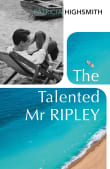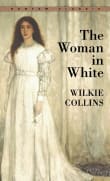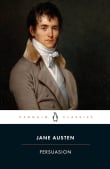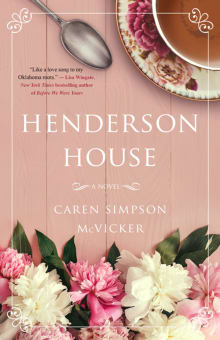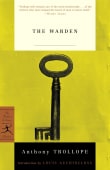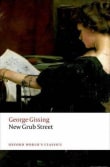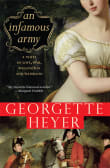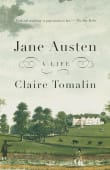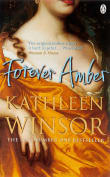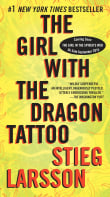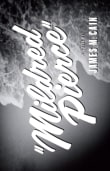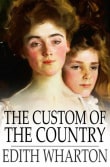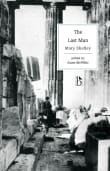Vanity Fair
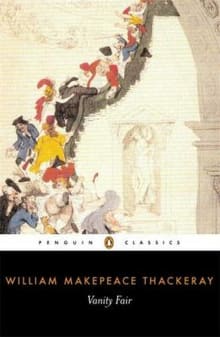
Book description
William Makepeace Thackeray's Vanity Fair depicts the anarchic anti-heroine Beky Sharpe cutting a swathe through the eligible young men of Europe, set against a lucid backdrop of war and international chaos. This Penguin Classics edition is edited with an introduction and notes by John Carey.
No one is better equipped…
Why read it?
7 authors picked Vanity Fair as one of their favorite books. Why do they recommend it?

Becky Sharpe is a character impossible to forget.
Through all the twists and turns of this plot, Becky shows herself to be both conniving and resilient in her quest to use those around her for her own gain. While not an attractive rendition of human nature, she forever has a wolf at her door and does what she thinks she must to stay one step ahead.
One gets whiplash from sympathizing with her one minute and being appalled by her lack of scruples the next, but, like all the characters she hoodwinks, we are captivated by her as someone who…
From Cinda's list on going on the road.

Famously, Thackeray subtitled his most celebrated work “a novel without a hero” – and frankly, that’s a major reason readers love it and it’s lasted so long. His anti-heroine Becky Sharp is even more notable for her wit, keen intelligence, and moral flexibility than for her personal attractions, and despite lacking both wealth and high birth, claws her way up the Georgian social ladder with scant regard for convention or other people’s feelings. Becky’s that rarity of (male-authored) nineteenth-century fiction: a female protagonist who’s fully-realised, three-dimensional, fascinating, and flawed – about as far from Dickens’s simpering tweens and caricatured crones…
From Katy's list on historical fiction with wanton & wilful women.

Serialised in Punch magazine in 1847/8, Vanity Fair covers the period from 1813 to about 1831. The heroine is an ambitious young woman called Becky Sharp, whose plan on leaving school is to use her youth, good looks, flirtatious nature, and, well, feminine charms to climb the social ladder. She’s what my grandmother would have called a minx. And minxes are such fun to watch from a safe distance, particularly when their adventures take them to Brighton (Regency hotspot), Brussels (awaiting news from the field as the Battle of Waterloo rages), and even to Court to be presented to the…
From Susan's list on the 1820s (officially the best decade ever).
If you love Vanity Fair...

Blazing her way through British society of the early 19th century in Thackeray’s rambling serialized novel, Becky Sharp is the spiritual “mother” of all the fearless females in fiction who follow her. Brilliant, charming, ruthless, utterly without principles, and totally amoral, Becky sees the emptiness of polite British society for the sham that it is. And she acts accordingly to do whatever it takes to get what she wants. Both in fiction and in real life, Becky Sharp is an enduring model for women of relentless ambition.
From Glenn's list on fearless females in fiction.

There are few social climbers in literature more determined than Becky Sharp. Born in 1814 London, the daughter of an art teacher and a French dancer, she's clear-eyed, sly, and, unfortunately for her, poor. A gossipy narrator follows Becky as she marries one more economically desirable man after another to rise through the ranks of English society. I like it when female characters turn the little power they have—in this case beauty and charm—into the more substantial power of money and social position. And yes, Becky is what they call a "difficult" woman, which makes her…
From Joy's list on ruthless social climbers.

Written more than thirty years after the Napoleonic Wars, Thackeray’s novel says a great deal about Regency morality and behaviour. Anti-heroine Becky Sharp is a penniless young woman on the make who considers morals and fair play to be a luxury. Becky moves with the changing times, aiming to advance and profit from every useful contact – particularly male. In short, she uses people and none more so than her supportive friend Amelia Sedley. As time sweeps on, Becky often goes too far but will she get her comeuppance?
From Terri's list on Regency wars, wit, and wisdom.
If you love William Makepeace Thackeray...

Like Jane Eyre, Becky Sharp is an orphan who becomes a governess. The similarity ends there. Determined to sleep her way to the top, she secretly elopes with Rawdon Crawley, younger son of her employer, only to discover soon after that she could have married the employer himself. Her new father-in-law and his rich eccentric sister leave the newlyweds penniless. Soon after, most of the main characters go to Belgium for the battle of Waterloo, where Becky sleeps with her best friend’s husband just before he’s killed in battle. Thackeray wrote to expose the folly of social climbing and…
From Janet's list on Victorian novels for complete beginners.
If you love Vanity Fair...
Want books like Vanity Fair?
Our community of 12,000+ authors has personally recommended 100 books like Vanity Fair.



